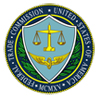
Malware Signed by Adobe Certificate Only Used in Limited Targeted Attacks
Adobe’s revocation of a code-signing certificate that had been used by attackers to sign several malicious utilities sparked concerns in the security community about widespread malware attacks using those utilities. The key concern was that most antimalware systems will implicitly trust files that are digitally signed and so would pass them by without flagging them as malicious. However, security researchers say that the utilities, while still circulating, aren’t being used in large-scale attacks.











